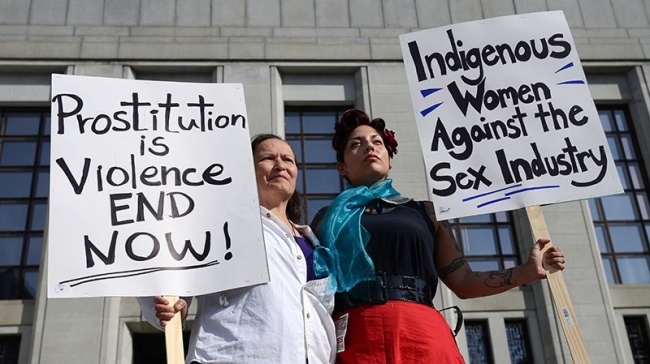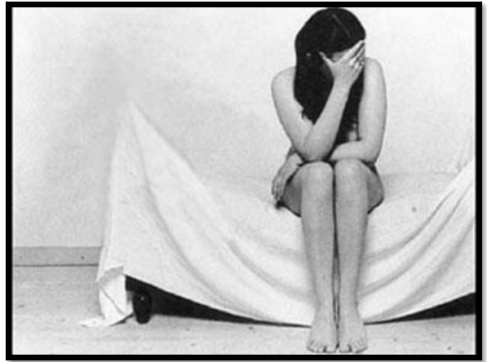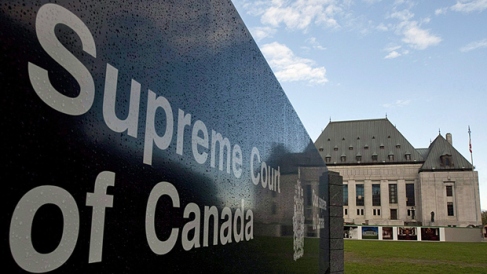sex trafficking
Together We Can- Offering Hope to One Girl At A Time
This past month has been busy with university exams, speaking at events, planning events and planning world domination (just kidding on the last part, kind of…) But seriously, you know those times when your so busy you think your brain will explode?
That was me: super busy, super tired, and quite honestly super discouraged. But then I met a lady we will call Dee. Dee introduced herself to me and then launched into stories about work, life and everything in between. I watched part exhausted and part in awe of her energy and passion as she told me amazing stories from her life. There was a warm fierceness about her that drew me in. Then Dee stopped, then asked me, “So what do you do?”
I told her about going to university, keeping busy and slipped in my desire to helping woman and girls. I told her that most recently I had been focusing on helping the sexually exploited both in Canada and SE Asia. Dee stopped. She grabbed me, hugged me and wept. “Thank you, thank you, I was trafficked as a sex slave when I was young, thank you for helping us!” Dee now a grown woman, free from the sex industry, held me in her arms and thanked me over and over. Of course, I cried.
Its unexpected times like those that keep me going. It is not like I have bust into brothels to rescue child prostitutes or stormed into rebel camps to rescue abducted girls but Dee reminded me that the little acts do matter. There are so many woman and girls experiencing all different forms of sexual violence, it’s overwhelming! But when we put faces to each of these woman, we are all drawn into contributing what we can and it all makes a difference!
I have had the privilege of getting to know 16 year old Grace. Grace is an incredible young woman, but she also represents your average teen. I say that because Grace is not necessarily different from any other teen accept that she has chosen to do some extraordinary things in the midst of ordinary life. Have you heard of rainbow loom? I hear it’s the latest craze! Well Grace started a project called Bracelets for Asia, she has been making rainbow loom bracelets to give to teens in SE Asia who have been forced into sexual slavery! What a creative and effective project!
Grace is using her context to make a face to face impact with teens halfway across the world. Grace sees each of those girls sold into slavery as a teen like herself who she might not be able to rescue but she can let them know they are cared for, and that brings hope. Grace’s project has caught on and now over a hundred bracelets have been made! Not only will girls in SE Asia receive a symbol of friendship and value but everyone making the bracelets are learning about the problems of sexual exploitation!
Meeting Dee this week reminded me of the importance of putting faces to a cause. Friends, Sexual Violence is a big issue representing so many faces; don’t be discouraged by the enormity of the problem. Instead, be like Grace, look around you and do something (however small it may seem) to help. I assure you if we all do something with the resources we have, we will make a difference!
If you would like to contribute bracelets to Grace’s project email me: jane@hopeforher.ca
Sexual Violence in our Communities…Creating A Different Response
When I was in elementary school I entered one of those kids art competition. This wasn’t a regular art competition. No, this was an art competition put on by the kids TV show Blue Peter! For those of you who aren’t familiar with British Television just know that was a prestigious competition to enter…at least on kid terms! Kids all across the United Kingdom were asked to paint a picture of themselves in a job of the future, as we got ready to welcome in the new millennium. My entry was my future career as a Space Air Hostess taking people on vacation to Space. I was very proud of my masterpiece and won the runner up prize which included being given the Blue Peter badge (seriously, a big deal!) Though I remember very little of what my entry looked like, I do remember thinking about the year 2000 with a sense of awe. I could only dream of what amazing technologies would be invented!
The year 2000 came and went. The world continued on; contrary to some people’s predictions, and while we haven’t quite reached the point of sending people to space on vacation, we certainly have advanced significantly since the early 90’s.
All the technology and shared intelligence that exists on our planet, astounds me. I mean have you seen what computers can do these days! At the same time, these technological advancements can lull us into a false sense of security as to how sophisticated we really are as a human race. We have invented electricity, computers, medical cures, put a man on the moon and yet as a human race we are so incredibly ignorant when it comes to caring for some of the most suffering members of our society.
I have heard many stories from survivors of sexual assault and rape. I have heard their stories, seen their strength, and shared in their hurt from the way society has treated them. Sexual assault and rape are societal issues that our society does not know how to handle. Our legal system (note legal not justice) caters to the perpetrators and shames the victim. Our medical system often labels survivors as time wasters, over medicates and surprisingly often electrically shocks the trauma out of people through ECT. Our teachers are not adequately trained to recognize signs of abuse in children. Our universities produce professionals with head knowledge without cultivating the wisdom and compassion to care for survivors. Yes our society can come up with the new all singing all dancing iPhone, but when it comes to tackling the issue of sexual assault and rape, our society is still using a rotary dial phone!
In Canada for example, it is estimated that 1 in 3 women and girls will be a victim of sexual assault. 1 in 3, now thats not 1 in 3 of women and girls outside your circle of influence. That is 1 in 3 of the women and girls you know. Are you equipped to support and empower those women and girls in your life?
As communities across the globe we need to stand up for victims of sexual violence and stand up against its presence in our communities, schools, workplaces and dare I say homes! As a friend of mine once put it, “sometimes tears are no longer enough, its time to act!”
Hope for Her International is working on a new project and we need your help! The project is in two parts. We are looking for input from people who :
1.Have personal experience with sexual violence and would like to share part of their story for the purpose of educating the general public.
2. Want to share a their message of support to those who have been sexually violated.
As I mentioned earlier, I have seen and heard of too many people who have been experienced sexual violence and have been met with messages of disbelief, shame and ignorance; too many victims are shamed, blamed or not believed. If we want to end sexual violence this needs to change, we need a different community response.We are working to do just that. We are creating a collection of survivors experiences that can help communities respond differently to sexual violence and a collection of supportive responses to those who have been sexually violated. Both parts of these submissions can be in any written, visual, artistic or audio/video etc. (there are no limitations).
The first option for submission answers the question: If you could help your community understand one thing about your experience of sexual violence what would it be?
Create a submission in any format and then send it to us here:
The second option answers the question: If someone you cared about was sexually violated, what would be one thing you would want to tell them?
1. Take a picture of yourself holding a message answering the question: If someone you cared about was sexually violated, what would be one thing you would want to tell them?
2. Post it on Facebook and tag it #hopeforherinternational and #creatingadifferentresponse so we can track the messages. Then nominate some friends to do the same.
Here is an example:
Know you know what to do….I nominate you to take part in creating a different response in YOUR community! If you have any questions contact jane@hopeforher.ca
Should Prostitution Be Legalized? : Debunking the Myths
In continuation of my last blog, Engaging in the Debate: Should Prostitution Be Legalized? I want to address some common misconceptions about the legalization of prostitution primarily highlighted by Joy Smith in her report, Tipping Point.
MYTH- Those opposed to the legalization of prostitution and in favour of abolition are moralists, religious or conservatives.
In many ways this myth couldn’t be further from the truth. Approaching prostitution from an abolitionist standpoint is cutting edge and progressive. Often countries like Canada herald nations such as Sweden for their standard of living and approaches to society. Sweden is the home of the abolitionist model in regards to prostitution. Joy Smith references a variety of organizations, which support the Canadian version of the Nordic Abolition Model including Canadian Association of Sexual Assault Centre’s, Native Women’s Association of Canada and Canadian Association of Elizabeth Fry Societies. Those in favour of abolition are not moralist, religious or conservative, they represent a group of people with an opinion based on research, experience and education.
MYTH – Legalization of Prostitution provides safety for sex workers.
Sex-industry lobby groups argue that prostitution should be a legitimate business – just made safer than it currently is. However, research from countries that have legalized prostitution (e.g. Germany, Australia, New Zealand, Holland) indicates that this has not worked.
- In 2013, German’s leading online paper Der Spiegel stated: “Germany has become a centre for sexual abuse of young women from Eastern Europe, and a playground for organized criminals from all over the world.”
- In Victoria, Australia, during 2003, police found in that legalization brought an increase in street prostitution as well as with high increases in the levels of violence and rape.
- In 2008, the Prostitution Law Review Committee in New Zealand found that the Prostitution Reform Act had not led to any significant improvement regarding employment conditions for sex workers.
MYTH – Legalization of Prostitution will prevent the prostitutes and brothels from going underground and being exploited.
Evidence suggests that this is not the case. The legalization of prostitution has not reduced underground brothels and women are still being exploited.
- In 2003, Major of Amsterdam, Job Cohen said that under the current Dutch legalization of prostitution, it was “impossible to create a safe and controllable zone for women that was not open to abuse by organized crime”.
- A 2002 estimate by the Victoria [in Australia] Police put the number of illegal brothels operating at 400, a number four times as large as the legal brothers.9
- A 2006 study by Canada’s Parliament found only 4% of prostitutes in the Netherlands registered after legalization due to stigma, leaving 96% underground and out of reach from police protection.
- A 2013 analysis examining the evidence heard by the Supreme Court of Canada in Bedford v. Canada documented the following evidence:
- 57% of women in legal brothels a Nevada study indicated they gave ‘part or all of their earnings to someone other than those controlling the legal brothel.’
- At least half the women in those brothels were ‘controlled by external pimps.’27
- Prostitutes within legal brothels were told they were ‘strictly forbidden to use condoms unless the customer asked for one…’
MYTH- Prostitution is the oldest profession and its not going to end.
Prostitution is not a profession; it is oppression. Think of apartheid in South Africa or any other human rights issues in history, what if people then had been happy to accept it as the norm:
“It is time to envision a society, and a world, without prostitution. This may sound idealistic, but the theory matters, the direction of travel matters, the aspiration matters; because if we can’t envision such a society, then we cannot even begin to build it…. Rather than simply throw our hands in the air and legalize the whole of the ‘sex-industry’, some genuine vision and ambition is needed here. It is time to choose which side we’re on, because the multibillion-dollar ‘sex-industry’ is doing fine and well, it does not need our support; it certainly does not need our protection. But around the world, exploited in prostitution, there are women, children and men who do, many of whom can see no end to their situation; so we must. We must make it happen; we must end one of the oldest human rights violations our world has known and relegate this blot on our humanity to history.” (Finn Mackay)
Unless otherwise indicated points have been taken from Joy Smith’s report ‘The Tipping Point‘ The purpose of this post is to summarize and discuss points in Smiths article to help inform the public. The intention is not to represent these views as my own original work or research. Picture from CTV.CA
The Canadian government is holding an online consultation between February 17th, 2014 to March 17, 2014 asking the public for their opinion on three international approaches: Decriminalization/legalization, Prohibition (criminalizes victim being sold), Abolition/Nordic Model. This is a critical time to take action! To take part in the consultation click here to be taken to the government consultation site.
Online Classifieds – Bike for sale, teen girl for sale.
I enjoy staying updated on worldwide news and considering the topics I write about, I naturally keep my ears open for news stories pertinent to sexual violence. This week my attention was drawn to an interview on CBC radio. CBC has been conducting an investigation into teen prostitution and a mother from Nova Scotia, Canada was interviewed. She shared her experience of discovering her teen daughter was being sold online via classified ads.
News spreads when it is sensationalized; it could be tempting to assume this is such a case. Yet time and time again when I look into such stories of sexual exploitation, I discover they represent only a fraction of the magnitude of the problem.
In Benjamin Perrin’s book, Invisible Chains: Canada’s Underground World of Human Trafficking he describes the story of a fourteen-year old girl was advertised for sale on Craigslist. “Typically the rate was two hundred dollars for thirty minutes or three hundred dollars for a full hour…Men travelled across Ontario to motels in the Toronto suburbs of Brampton and Mississauga to hand over their cash and claim their purchase.” This happened in 2007! It is 2014, that’s at least 6 years ago! The problem has been growing. We need to catch up and get ahead of those exploiting our girls!
Go to sites like craigslist or backpage and it is relatively easy to find evidence of minors being sexually exploited. There are ads written in barely cyrpited language to blatently advertise the services of such girls.
In the CBC radio interview the mother spoke to the use of online ads selling minors, “You can tell they’re underage,” she said. “They’re not fully developed. Some of them don’t even have hips yet — that’s how young they are. And the descriptions, the way they describe themselves. The wording they use — if it’s a girl that is underage, they always use the word ‘young.’”
In my research, I discovered there is a whole dictionary of euphemisms used to sell sexual services online including services by minors. This is an issue across Canada and our hoping that it doesn’t happen in our communities, neighborhoods and homes is what helps it continue. While writing this post, I received a phone call from a friend living in small town Canada. She shared with me some of her insights into the sexual exploitation of minors in her town. From her experience girls either ‘voluntarily’ sell themselves online (because they have been taught that their body is a commodity they can sell without consequence) or they are recruited and pimped out.
Just like the news stories I’ve read, this post has barely scratched the surface of the problem and I hope to look at some of the issues raised in future posts. For the mean time I want to leave you with some practical tools that you can use to help teen girls who may be caught up in all this.
As I mentioned in my previous blog entitled Reading with Sally: Lessons on Child Marriage from Children we all have young people around us and who we have the privilege of being able to encourage, empower….and protect! Take a look at the info below and create an open dialogue with the teens in your life.
A minor could be at risk for involvement in prostitution if he or she demonstrates a number of the following
attitudes or behaviours:
- Withdraws from family and/or friends
- Secretive and reserved with information about where they have been or with whom
- Protective of a new boyfriend or friend and provides little information when asked about the relationship
- Comes home later than usual for unexplained reasons
- Hangs around with an older crowd
- Wears expensive clothing and/or jewellery they could not possibly afford to buy
- Carries a cell phone or pager using blocked or private phone numbers
- Carries condoms or other sexual aids
- Secretive about Internet sites and contacts underage sexual activity
- Inappropriate sexual or sexualized behaviour
- Receiving unexplained gifts or gifts from unknown sources
- Having multiple mobile phones and intense fear over losing contact via cellphone
- Changes in the way they dress
- Going to hotels or other unusual locations to meet friends
- Seen at known places of concern
- Moving around the country, appearing in new towns or cities, not knowing where they are
- Getting in/out of different cars driven by unknown adults
- Involved in abusive relationships, intimidated and fearful of certain people or situations
- Hanging out with groups of older people, or anti-social groups, or with other vulnerable peers
- Associating with other young people involved in sexual exploitation
- Skipping school, disengagement with school, opting out of education altogether
- Unexplained changes in behaviour or personality (chaotic, aggressive, sexual)
- Mood swings, volatile behaviour, emotional distress
- Self-harming, suicidal thoughts, suicide attempts, overdosing, eating disorders
- Drug or alcohol misuse
- Getting involved in crime
- Involved in gangs
- Unexplained injuries.
If you even suspect a minor you care about may be at risk of being sexually exploited, trust your instincts and act immediately. Whether a teen has ‘chosen’ to enter into this work or has been coerced, they need help. For assistance contact your local authorities or assault centre.
Sources: Invisible Chains by Benjamin Perrin, http://www.cbc.ca/news/canada/nova-scotia/sex-sold-online-by-teenagers-horrifies-halifax-mother-1.2494785, NSPCC and Alberta Government Website
Supreme Court Ruling: A Chance to Respond
It was announced today that the Canadian Supreme Court has unanimously ruled in favour of the Bedford vs. Canada case. The Supreme Court said that the laws prohibiting keeping a brothel, living on the avails of prostitution, and communicating in public for purposes of prostitution are unconstitutional and prevent sex workers who choose the trade from securing a safe working environment. It should be noted that selling oneself for sex is (and has been) legal for some time and that this ruling makes the business of prostitution legal. A business primarily fuelled by domestic and international sex trafficking.
As I mentioned in my post, Bedford vs. Canada- Rights for the Majority, the outcome of today’s ruling protects the minority; those that freely choose to engage in prostitution while benefitting pimps and johns who exploit the majority of sex workers.
The Government now has 1 year to respond to this ruling. The issue is a complex one; do we deny the rights of a few, at the cost of legalizing the exploitation of many others? Is there a way to protect both?
Many organizations are pressing the government to adopt a variation of the Nordic Model in response to today’s Supreme Court ruling. The Nordic Model has been in affect in Sweden since 1999. As a whole, it has had significant positive impact. I think the Nordic Model provides a strong framework for Canada to respond. Additionally, Canada can benefit from the lessons Sweden has learned during the years it has been in place and adapt the model accordingly.
For more information on the Nordic Model click here to go to The Justice Women site. Source for quote http://www.ctv.ca/news. Image link http://news.nationalpost.com/2013/12/20/supreme-court-strikes-down-canadas-anti-prostitution-laws/
Bedford vs. Canada – Rights for the Majority
On Friday December 20th, the Supreme Court will announce their decision on the Bedford vs.Canada case. Bedford vs. Canada is a constitutional challenge to Canada’s prostitution laws that make keeping a bawdy-house, living on the avails of prostitution and public communication for the purpose of selling sex for money illegal.
The case was first brought to the courts in 2007 by sex workers Terri-Jean Bedford, Amy Lebovitch and Valerie Scott. The Supreme Courts decision will be final and will apply to all provinces and territories. If the Supreme Court rules in Bedfords favour it will essentially make the business of prostitution legal in Canada.
Some streams of thought have hailed Terri-Jean Bedford, Amy Lebovitch and Valerie Scott as courageous women who give voice to the rights of sex workers nationwide. Indeed, these woman show much courage yet it is clear that they represent a slim portion of sex workers. The majority of sex workers do not freely choose to be in this role. Rather the majority of people end up in prostitution as a result of a range of societal issues that leave them in a place of helplessness and desperation. Furthermore, it is well documented that coercion and a history of abuse are major factors. I mentioned in a previous blog Partners in Crime? Prostitution and Sex Trafficking that prostitution is an end destination for trafficking victims.
While I may not agree with Terri-Jean Bedford, Amy Lebovitch and Valerie Scott choice to be sex workers, I cannot deny that they should indeed have rights. However, by giving them the right to commercially sell themselves, the rights of the majority of sex workers would be stripped. Take a walk in the red light district in Amsterdam (where prostitution is fully legal) and you will see that the majority of women are not there by choice but rather woman have been trafficked to feed the established legal industry. Legalizing the buying and selling of sex is not the answer.
Sweden has taken an alternative approach. After years of research, in 1999 Sweden adopted what is known as the Nordic Model. The Nordic model criminalizes the buying of sex while decriminalizes the act of selling sex. In addition, a third crucial element is added in the Nordic Model; comprehensive support is provided for sex workers who want to find alternative work and there is increased public education regarding the issue of sexual exploitation.
Sweden’s stance is this:
“Prostitution is regarded as an aspect of male violence against women and children. It is officially acknowledged as a form of exploitation of women and children and constitutes a significant social problem… gender equality will remain unattainable so long as men buy, sell and exploit women and children by prostituting them.”
After the ruling for Bedford vs.Canada is announced, the Parliament will have an opportunity to respond. I appreciate the rights of these three brave women who have spoken up for themselves yet I cannot ignore the rights of the majority, the women, men and children being sexually exploited in Canada. That majority are voiceless and are victim to circumstance, coercion not free choice. By demanding that Canada base their prostitution laws on the Nordic Model, we can empower those trapped in sexual exploitation while sending a clear message that Canada will not tolerate sexual violence.
For more information on what you can do click here for more information and an opportunity to sign a petition that will make a difference!










